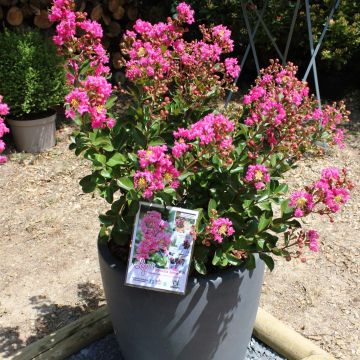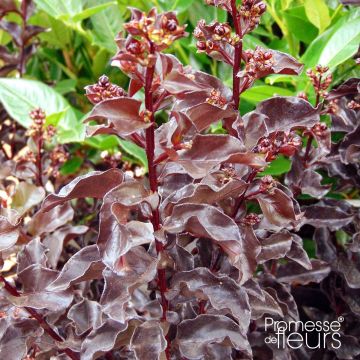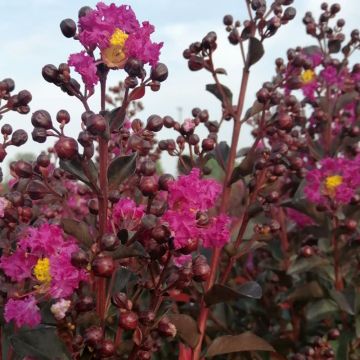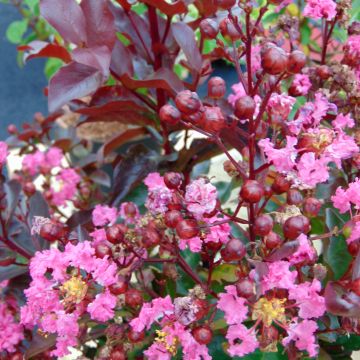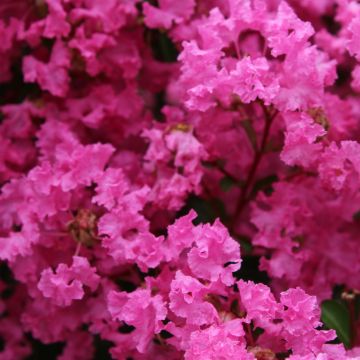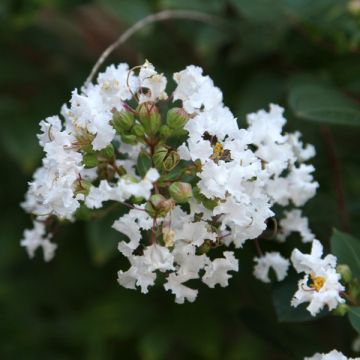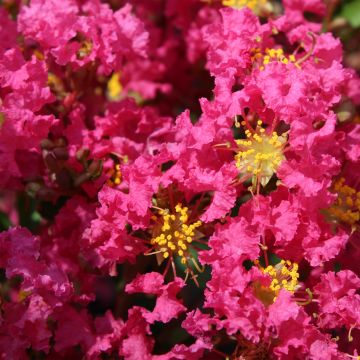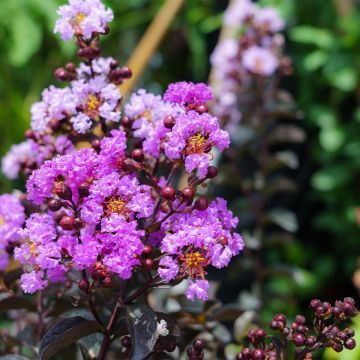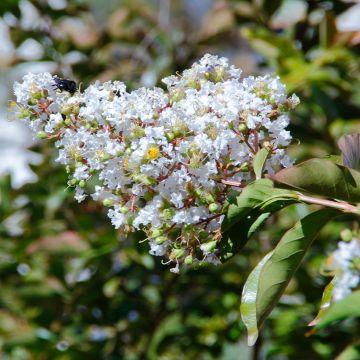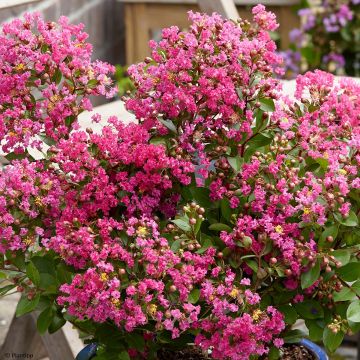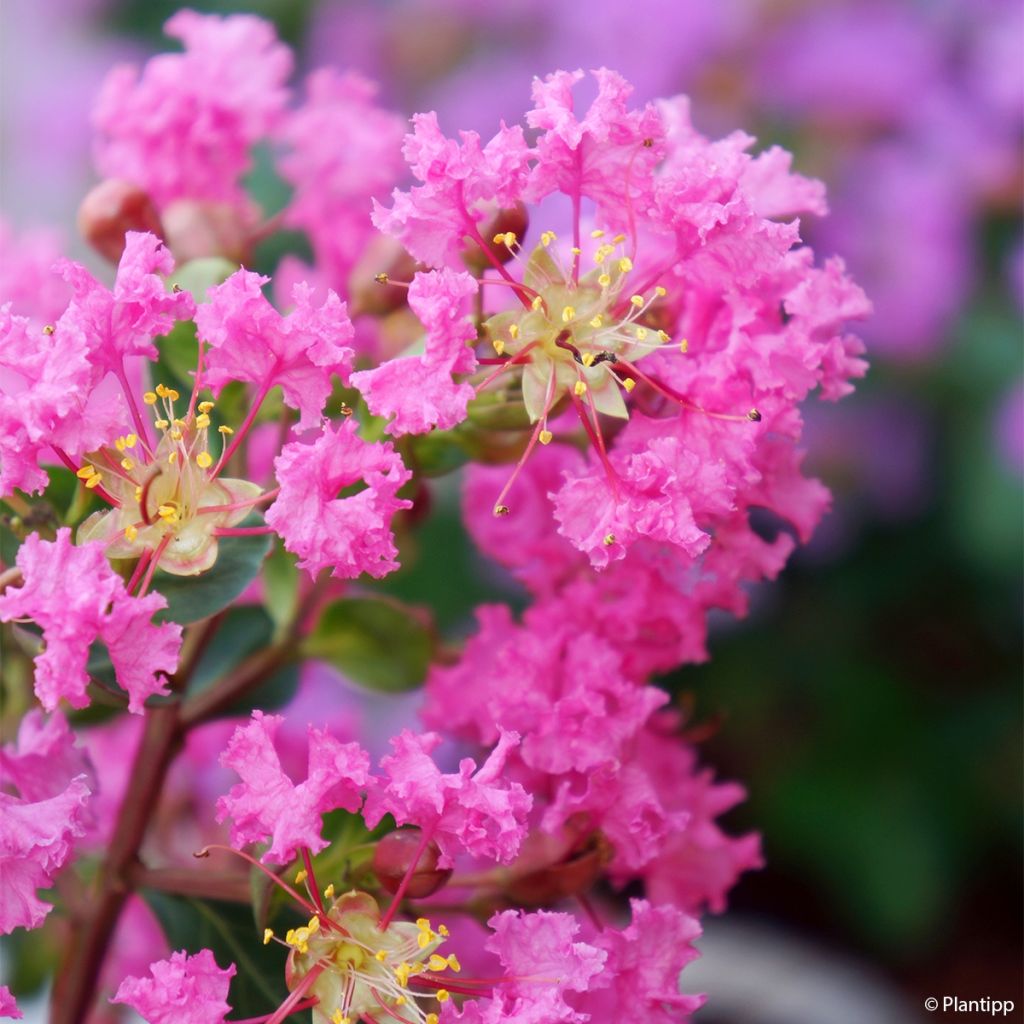

Lagerstroemia indica Girl with Love - Crape Myrtle
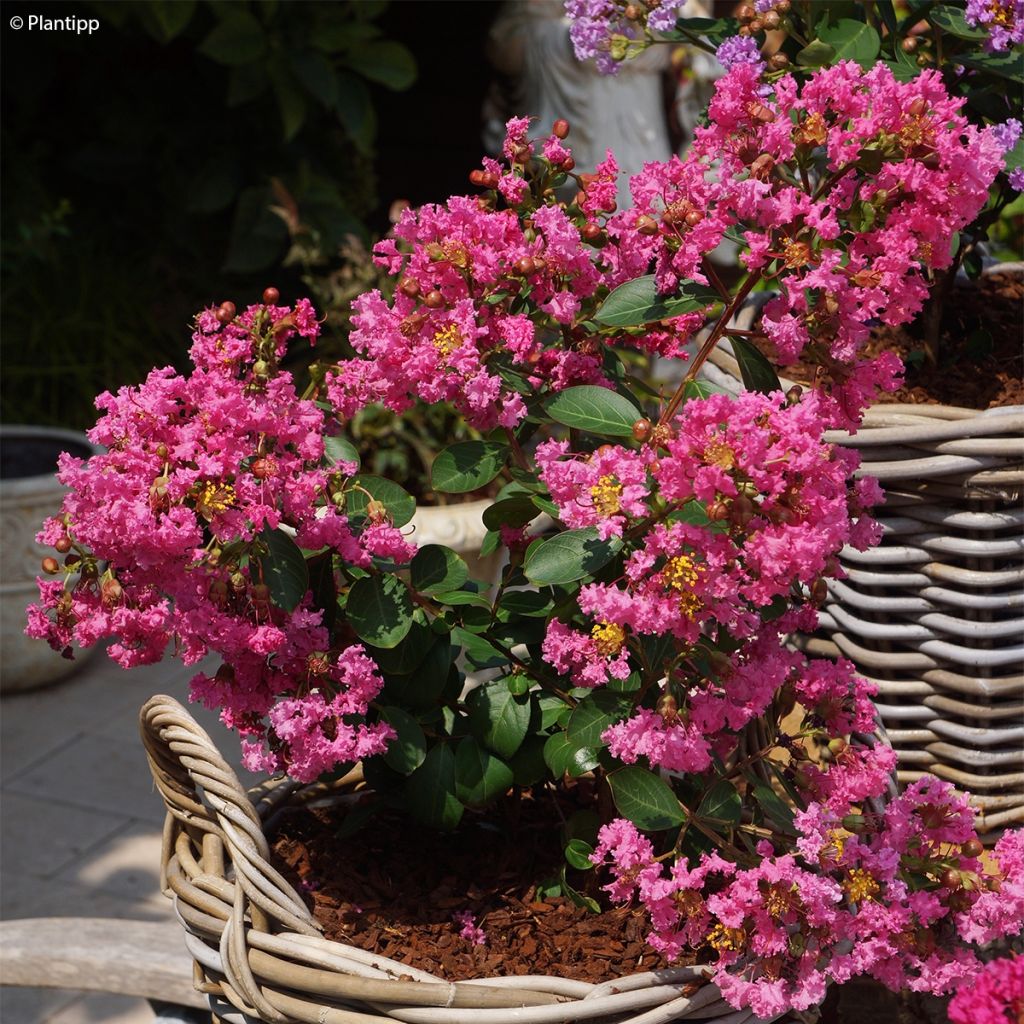

Lagerstroemia indica Girl with Love - Crape Myrtle
Lagerstroemia indica Girl with Love - Crape Myrtle
Lagerstroemia indica GIRL WITH LOVE® PBR
Crape Myrtle, Crepe Myrtle, Indian Lilac
Special offer!
Receive a €20 voucher for any order over €90 (excluding delivery costs, credit notes, and plastic-free options)!
1- Add your favorite plants to your cart.
2- Once you have reached €90, confirm your order (you can even choose the delivery date!).
3- As soon as your order is shipped, you will receive an email containing your voucher code, valid for 3 months (90 days).
Your voucher is unique and can only be used once, for any order with a minimum value of €20, excluding delivery costs.
Can be combined with other current offers, non-divisible and non-refundable.
Home or relay delivery (depending on size and destination)
Schedule delivery date,
and select date in basket
This plant carries a 24 months recovery warranty
More information
We guarantee the quality of our plants for a full growing cycle, and will replace at our expense any plant that fails to recover under normal climatic and planting conditions.
Would this plant suit my garden?
Set up your Plantfit profile →
Description
The Lagerstroemia indica 'Girl With Love' is a very pretty variety of Indian Lilac with a compact habit. Its bright pink flowering spreads throughout the summer and early autumn, making it one of the best summer flowering bushes. In autumn, its leaves take on beautiful colours, thus extending its ornamental interest. Selected for its good hardiness, this bush can also be grown in pots in the colder regions. It has all the qualities needed for small gardens and terraces and will flourish in full sun, in fertile, light, not too dry soil.
The Indian Lilac 'Girl With Love' belongs to the small family of Lythraceae, known also to host the pomegranate (Punica granatum), of which there are flower and fruit species, as well as the cuphea, a few species of which are used as flowering perennials on the Mediterranean coast. These are indeed moderately to slightly hardy plants, the Lagerstroemia being one of the hardiest, as it resists up to -10 °C to -15 °C. However, it needs heat to flower, which limits its interest in northern areas, even though its bark becomes decorative over time, as the branches or trunk thicken. Indeed, in a cool area, it is most often present in the form of a bush, but in the south, tree-shaped specimens can be found.
'Girl With Love' is a variety of Indian Lilac that has been the subject of selection for several years, in Italy and then in the Centre of France, according to various criteria, notably resistance to diseases and cold, as well as the earliness and duration of flowering. This lasts for more than 2 months between July and October, the bush displaying beautiful clusters of bright pink flowers. The rather airy inflorescences are compound, made up of fine pedicels each bearing a flower with five very undulate petals, the texture of which is reminiscent of a crepe. The foliage, leathery and deciduous, is quite dark and glossy. It is composed of small ovate leaves, which take on beautiful yellow to reddish hues in autumn before falling, depending on the climate.
Preferring the humid and warm South Atlantic to the dry and windy Mediterranean, it is nevertheless successful on the mediterranean provided it is watered a little in summer. This bush also deserves to be acclimated in the colder areas of our country, carefully choosing the variety - and 'Girl With Love' is a good candidate for this - and its location. It is when placed alone, close to the house, that you will be able to fully enjoy its generosity. It will also look good in a bush bed, a flowering hedge or emerging from a mound of perennials. Compose a bed like a bouquet, with Nepeta, Salvia sclarea or jamensis, Aster laevis. It will also partner well with other summer flowerings, like the formidable Lavateras, very hardy large perennials or the Hibiscus syriacus with their dazzling colours.
NB : Karl Von Linnaeus named this tree to honour his friend Magnus Von Lagestroem (1696 – 1759), who had sent it to him from India for identification. Originally, this tree was used to decorate Chinese temples. We would like to point out that this tree produces fruits that have a narcotic action if ingested.
Report an error about the product description
Lagerstroemia indica Girl with Love - Crape Myrtle in pictures
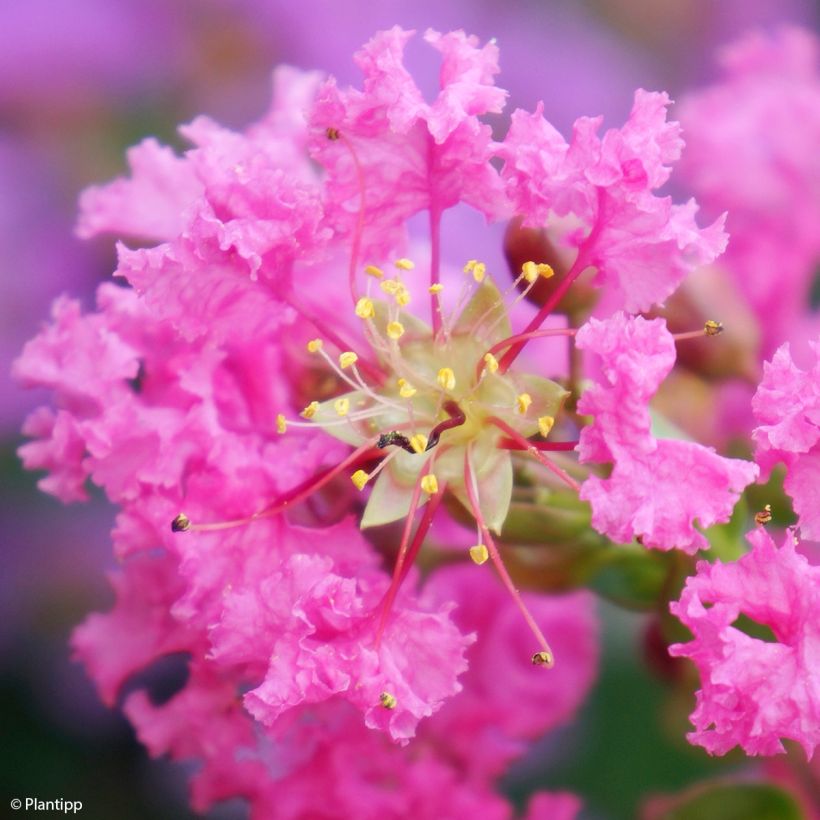

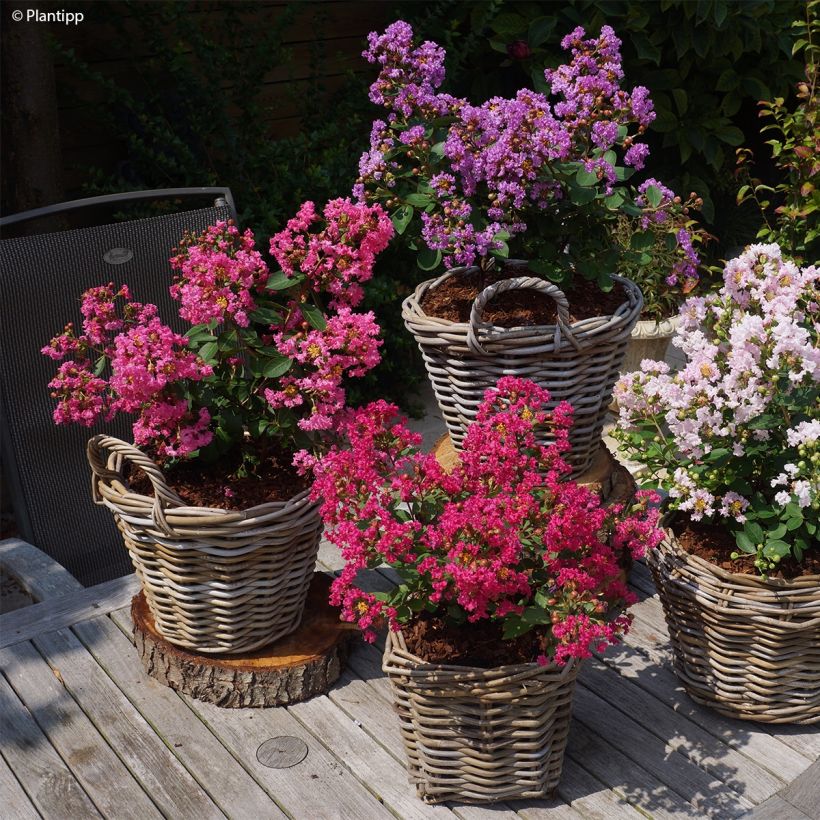

Plant habit
Flowering
Foliage
Botanical data
Lagerstroemia
indica
GIRL WITH LOVE® PBR
Lythraceae
Crape Myrtle, Crepe Myrtle, Indian Lilac
Cultivar or hybrid
Other Lagerstroemia - Crape Myrtle
View all →Planting and care
We advise you to plant the Lagerstroemia indica 'Girl With Love' in spring, when frosts are no longer to be feared, in a very sunny and sheltered location, in a rich soil, rather fresh, well drained and if possible slightly acidic, neutral or a little limestone. In the south region, on the other hand, it would be better to plant it in the autumn so that it can benefit from the seasonal rains to root. It will appreciate a contribution of compost and a thick layer of dead leaves, especially the first two winters in slightly cold regions. It is necessary to prune very short the flowering branches in February-March leaving only 4 to 6 buds to balance its branches and stimulate the growth of future flower-bearing branches. Also remove the weak twigs that will not produce any flowers and the poorly positioned branches.
Cultivation in a pot or in a large pot is possible, even recommended in regions where frosts are severe and prolonged. This bush still resists up to -15 °C at peak, once it is old enough and well established.
Planting period
Intended location
Care
This item has not been reviewed yet - be the first to leave a review about it.
Haven't found what you were looking for?
Hardiness is the lowest winter temperature a plant can endure without suffering serious damage or even dying. However, hardiness is affected by location (a sheltered area, such as a patio), protection (winter cover) and soil type (hardiness is improved by well-drained soil).

Photo Sharing Terms & Conditions
In order to encourage gardeners to interact and share their experiences, Promesse de fleurs offers various media enabling content to be uploaded onto its Site - in particular via the ‘Photo sharing’ module.
The User agrees to refrain from:
- Posting any content that is illegal, prejudicial, insulting, racist, inciteful to hatred, revisionist, contrary to public decency, that infringes on privacy or on the privacy rights of third parties, in particular the publicity rights of persons and goods, intellectual property rights, or the right to privacy.
- Submitting content on behalf of a third party;
- Impersonate the identity of a third party and/or publish any personal information about a third party;
In general, the User undertakes to refrain from any unethical behaviour.
All Content (in particular text, comments, files, images, photos, videos, creative works, etc.), which may be subject to property or intellectual property rights, image or other private rights, shall remain the property of the User, subject to the limited rights granted by the terms of the licence granted by Promesse de fleurs as stated below. Users are at liberty to publish or not to publish such Content on the Site, notably via the ‘Photo Sharing’ facility, and accept that this Content shall be made public and freely accessible, notably on the Internet.
Users further acknowledge, undertake to have ,and guarantee that they hold all necessary rights and permissions to publish such material on the Site, in particular with regard to the legislation in force pertaining to any privacy, property, intellectual property, image, or contractual rights, or rights of any other nature. By publishing such Content on the Site, Users acknowledge accepting full liability as publishers of the Content within the meaning of the law, and grant Promesse de fleurs, free of charge, an inclusive, worldwide licence for the said Content for the entire duration of its publication, including all reproduction, representation, up/downloading, displaying, performing, transmission, and storage rights.
Users also grant permission for their name to be linked to the Content and accept that this link may not always be made available.
By engaging in posting material, Users consent to their Content becoming automatically accessible on the Internet, in particular on other sites and/or blogs and/or web pages of the Promesse de fleurs site, including in particular social pages and the Promesse de fleurs catalogue.
Users may secure the removal of entrusted content free of charge by issuing a simple request via our contact form.
The flowering period indicated on our website applies to countries and regions located in USDA zone 8 (France, the United Kingdom, Ireland, the Netherlands, etc.)
It will vary according to where you live:
- In zones 9 to 10 (Italy, Spain, Greece, etc.), flowering will occur about 2 to 4 weeks earlier.
- In zones 6 to 7 (Germany, Poland, Slovenia, and lower mountainous regions), flowering will be delayed by 2 to 3 weeks.
- In zone 5 (Central Europe, Scandinavia), blooming will be delayed by 3 to 5 weeks.
In temperate climates, pruning of spring-flowering shrubs (forsythia, spireas, etc.) should be done just after flowering.
Pruning of summer-flowering shrubs (Indian Lilac, Perovskia, etc.) can be done in winter or spring.
In cold regions as well as with frost-sensitive plants, avoid pruning too early when severe frosts may still occur.
The planting period indicated on our website applies to countries and regions located in USDA zone 8 (France, United Kingdom, Ireland, Netherlands).
It will vary according to where you live:
- In Mediterranean zones (Marseille, Madrid, Milan, etc.), autumn and winter are the best planting periods.
- In continental zones (Strasbourg, Munich, Vienna, etc.), delay planting by 2 to 3 weeks in spring and bring it forward by 2 to 4 weeks in autumn.
- In mountainous regions (the Alps, Pyrenees, Carpathians, etc.), it is best to plant in late spring (May-June) or late summer (August-September).
The harvesting period indicated on our website applies to countries and regions in USDA zone 8 (France, England, Ireland, the Netherlands).
In colder areas (Scandinavia, Poland, Austria...) fruit and vegetable harvests are likely to be delayed by 3-4 weeks.
In warmer areas (Italy, Spain, Greece, etc.), harvesting will probably take place earlier, depending on weather conditions.
The sowing periods indicated on our website apply to countries and regions within USDA Zone 8 (France, UK, Ireland, Netherlands).
In colder areas (Scandinavia, Poland, Austria...), delay any outdoor sowing by 3-4 weeks, or sow under glass.
In warmer climes (Italy, Spain, Greece, etc.), bring outdoor sowing forward by a few weeks.






























